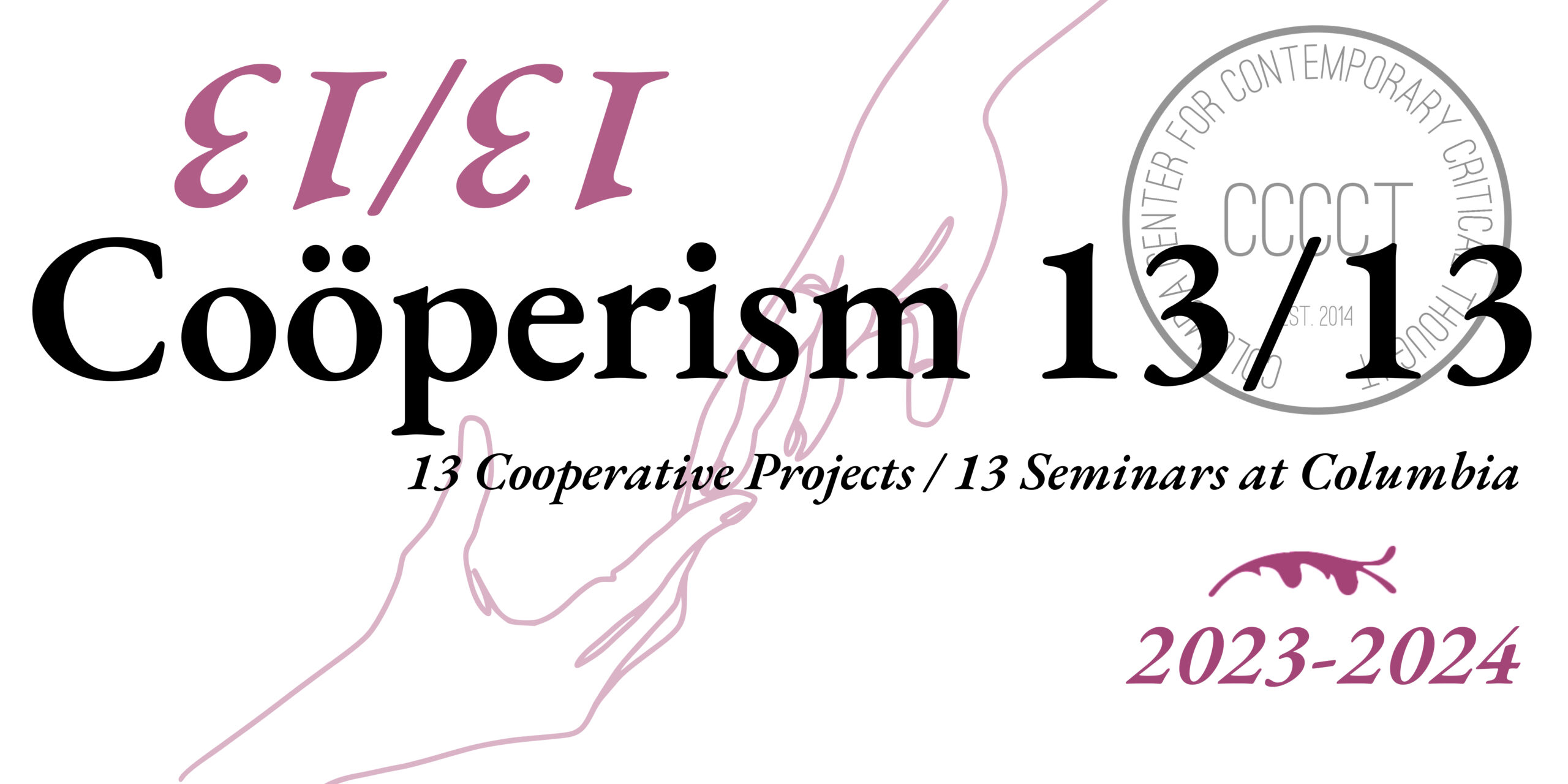Benjamin Davis, Frieda Ekotto, and Bernard E. Harcourt
read and discuss
Simone Weil and Simone Weil’s Political Philosophy by Benjamin Davis
(all readings available here)
Wednesday, November 29, 2023
Columbia University
Opposed to fascism, Simone Weil volunteered to fight against Franco. She headed off to Spain in August 1936. Weil joined the ranks of the anarcho-syndicalists in Aragon and Catalonia to fight against the fascists. When Simone Weil left for Spain, she acted on philosophical conviction. Such courage is not something that one often sees among philosophers.
A few years earlier, Weil had similarly displayed this kind of courage and engagement—and fidelity to her philosophical principles. She worked in a factory in 1934 and 1935, the Alsthom (Société Générale de constructions électriques et mécaniques) factory near the Boulevard Victor on the southern periphery of Paris. The fieldnotes she took during her time there, her Journal d’usine (“Factory Journal”), documents minutely her tasks, her hours of work, her interactions and exchanges with coworkers, the industrial equipment she used, and her deep meditations on the experiences of her co-workers.
As evidenced by her time in the factory and on the Spanish front, Weil dedicated herself to thinking and acting on questions of cooperation and collectivity. In her work The Need for Roots: Prelude to a Declaration of Duties towards Mankind, Weil in fact meditated on the cooperative form, proposing that working conditions should be radically transformed to allow for work to be organized either at home or “in small workshops, which could very often be organized on a cooperative basis.”
What resources and tools, both theoretical and practical, does Weil offer to approach cooperation more productively? How does her philosophy and the way she led her life help forge a path toward coöperism? In this seminar, we will explore Simone Weil’s philosophical writings and praxis in relation to these questions about cooperation and collectivities.
To help address these questions, we are privileged to welcome two brilliant critical thinkers, both experts on Simone Weil’s political philosophy. Benjamin Davis, who joins us from Saint Louis University, is the author most recently of the book on Simone Weil’s philosophy that you have all read for this seminar, Simone Weil’s Political Philosophy: Field Notes from the Margins, just published this year at Rowman & Littlefield. He is also the author of Choose Your Bearing: Édouard Glissant, Human Rights and Decolonial Ethics out this year as well, and we will be discussing that at a seminar earlier in the day on November 29, 2023 at noon. Frieda Ekotto is the Lorna Goodison Collegiate Professor of Afroamerican and African Studies, Comparative Literature and Francophone Studies at the University of Michigan. A philosopher and intellectual historian, she is the author of several books, including Race and Sex across the French Atlantic (2011) and L’Ecriture carcérale et le discours juridique: Jean Genet (2001), and the current President of the Modern Languages Association (2023-2024). I could not dream of a better panel to explore Simone Weil on cooperation.
Welcome to Coöperism 7/13!
***
“Édouard Glissant’s Right to Opacity in Practice”
Lecture and discussion with Benjamin Davis and moderator Souleymane Bachir Diagne.
Wednesday, November 29, 2023
(readings on Édouard Glaissant are available here)
Columbia University
In several places across his work, the Martinican poet, novelist, and essayist Édouard Glissant calls for a “right to opacity,” which he vaguely explains as that which protects diversity across humankind. In this way, Glissant’s right to opacity could be understood as a standard cultural rights claim. But in his 1997 Treatise of the Whole World, Glissant adds about the right to opacity, “Let it be a celebration.” Because activists and lawyers frequently invoke rights claims, the traditional sites of human rights practice are often thought to be oppositional protests and international courtrooms. How, then, could a rights claim be a celebration? In this talk, I will suggest that recent prayer camps at Standing Rock and on Anishinaabe treaty land in northern Minnesota expand how we understand theories of cultural rights. When the celebrations at prayer camps are included as sites of practicing rights, critical theory gains a wider imaginary for understanding and transforming the relationship between the state and social movements. Further, attending to the orientations at the camps, ordinary citizens are called to live differently in our everyday lives. I will ultimately suggest that these rights claims, as first situated amidst the land, are part of honoring what Glissant calls “a modern form of the sacred.” Thought this way, the right to opacity resonates with the German critical theorist Ernst Bloch’s radical reading of natural law as connecting right and revolution, law and utopia. And thought this way, the right to opacity could be a tool to connect and organize across struggles that, without a larger guiding framework, by and large remain fragmented and unconnected performative assemblies.
